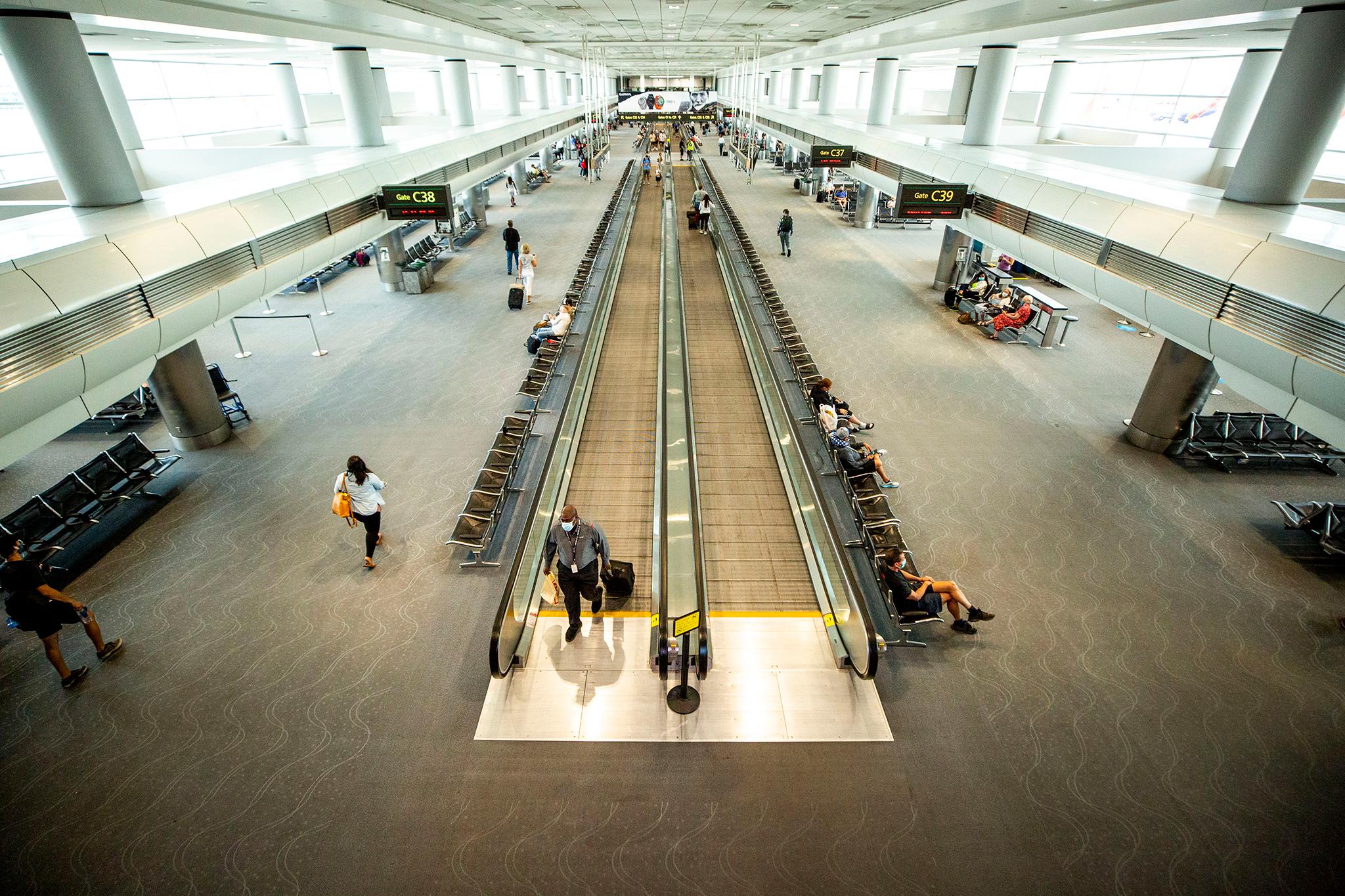Denver City Council will soon consider a $40 million contract between DIA and an elevator company to upgrade about 70 elevators, escalators and moving walkways -- those human conveyor belts in the terminals -- at the airport.
The contract with Thyssenkrupp Elevator Corporation would run for five years. The company already has a contract with the airport for similar work on such equipment, which Sandra Scanlon, who oversees construction projects at the airport, said helped it land this new competitive contract.
Scanlon said the airport would repair older parts in mechanisms that move people, some of which are 26 years old -- as old as the airport itself. The airport also plans on buying new equipment that would notify airport staff of issues on escalators and elevators in real time. Scanlon told City Council members on Wednesday that when this kind of equipment breaks down, staffers might not know immediately.
The $40 million will come from the airport's own Capitol Improvement Program, which is a $3.5 billion bond-funded program, according to DIA spokesperson Emily Williams. This is the same fund paying for the Great Hall project; City Council approved a contract for that project last year.
The new contract would be a drop in the bucket compared to the more than $33.5 billion DIA makes for the state's economy, at least according to the most recently available figures, released last year. The airport dubs itself the state's biggest economic driver.
Yet, like many other businesses and services, the airport took a big hit because of the pandemic. The airport had about a third of the traffic between June 28 and July 4 as it did during the same time frame in 2019. Traffic rebounded slightly from mid-April 2020 as the pandemic continued.













